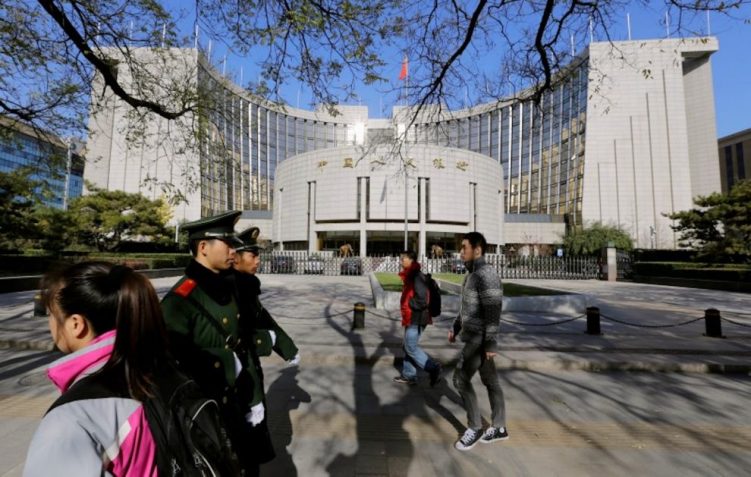Chinese mutual funds’ bond assets shot up to a record 6.5 trillion yuan ($894.3 billion) in May – 40% above the level in 2023, official data showed on Thursday.
The increase illustrates how low deposit rates are causing greater cash inflows into fixed income products because of stock market volatility.
China’s treasury futures have also leapt to fresh highs. Investors have shrugged off repeated warnings about risk from the central bank and continued to plough money into bonds despite long-dated yields skirting record lows.
ALSO SEE: UN Rapporteur Calls on Thai Banks to Stop Aiding Myanmar Junta
The bond bull run in China mirrors investor pessimism towards an economy grappling with a real estate crisis, local government debt troubles and heightened geopolitical risks.
Markets are broadly in agreement that China’s interest rates will trend lower, Su Gang, chief investment officer at China Pacific Insurance Group, told a conference this week.
“We’re in the midst of a long cycle that we’ve never experienced before …. and the market lacks confidence.”
Feverish bond buying
The continuous decline in yields, which move inversely to bond prices, is testing the resolve of the People’s Bank of China (PBOC) to cool feverish bond buying it deems could endanger financial stability.
Despite these warnings, investors have continued to drive up bond prices this week.
China’s 30-year treasury futures for September delivery rose roughly 0.3% on Thursday morning to a record high, while 10-year bond futures also hit new heights.
Meanwhile, China’s 10-year treasury yield has dropped below the sensitive 2.3% level, and is approaching the April low of 2.205%. The 30-year yield has slid below 2.5%, a level many had feared could invite central bank action.
Latest data suggests depositors are moving money into bond funds as banks keep lowering savings rates to reduce cost.
Chinese corporate demand deposits in May dropped to a two-year low of 52.98 trillion yuan, representing a 7.1% decline from a year earlier, the biggest on record, according to central bank data.
Meanwhile, bond mutual fund assets in May grew to a record 6.5 trillion yuan, up 40% from 4.6 trillion yuan a year earlier.
Banks, reluctant to lend in a wobbly economy, are also investing heavily in Chinese government bonds, seen as safe haven assets. Smaller banks, which have fewer quality clients to lend to, are more active in bond buying than major banks.
Commercial banks own about 20.3 trillion yuan worth of Chinese government bonds in the interbank market, accounting for 71% of the total.
Banks also buy other types of yuan-denominated bonds such as those issued by state policy banks.
- Reuters with additional editing by Jim Pollard
ALSO SEE:
China’s PBOC May Start Bonds Trading, Amid Stability Concerns
China Central Bank’s Bond Trading Goal Hit by ‘Asset Famine’
China Told it Must ‘Reinvent Itself’ to Turn Economy Around
China Bonds Bonanza Fuelled by ‘Asset Famine’, Property Woes
Indebted Provinces Seek Help From State Banks in Beijing – FT
Foreign Investment in China Slumps 20% in January-February
China Holds Firm on Rates But Deflation Worries Weigh
























